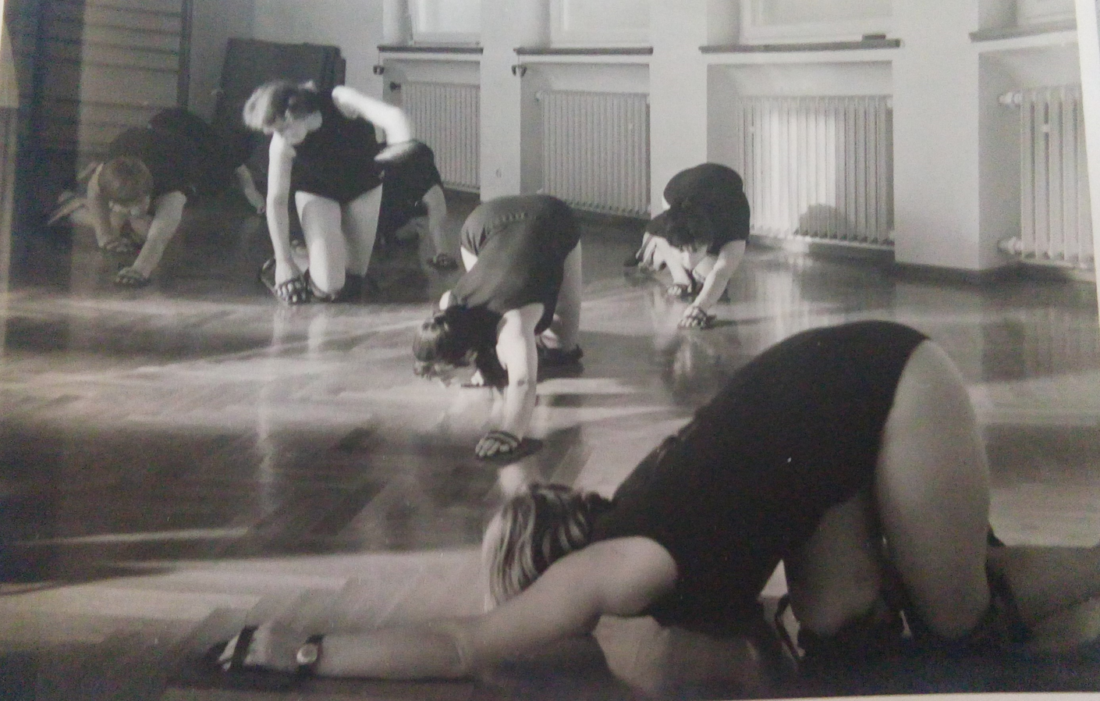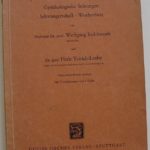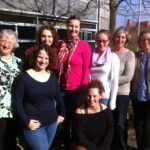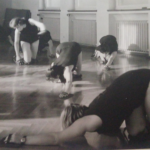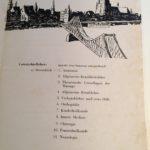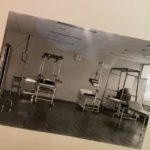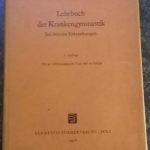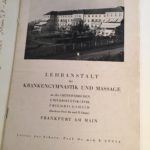By Karoline Munsch and Sandra Schiller
Over the years, quite a number of oral history projects have been conducted in physiotherapy, for example in the USA (https://www.apta.org/History/OralHistories/), the United Kingdom (http://sami.bl.uk) and New Zealand (https://100yearsofphysio.org.nz/oral-histories/). The occasion for such projects has often been an anniversary, e.g. the centenary of the founding of the professional association.
In Germany, a research project at HAWK University of Applied Sciences and Arts in Hildesheim has been devoted to exploring the development of physiotherapy after the Second World War from a physiotherapeutic and historiographical perspective. The aim of this project is to obtain a more accurate picture of (West) German physiotherapy in the post-war period up to the end of the 1950s by means of oral history interviews.
Systematic historical research is essential to help us understand the emerging professional image of physiotherapy against the background of influential conditions and context factors. Physiotherapy in Germany looks back on a long tradition, as Swedish medical gymnastics was already practised in the mid-1840s and the first state-approved educational institution for medical gymnastics was established in 1900. Nevertheless, there are considerable gaps in knowledge regarding its history. As long as members of the profession who experienced this period themselves as professionals or students can still be interviewed, oral history is a useful method for collecting and evaluating relevant data to answer central questions regarding professional experiences during this period.
In historiographical research on the allied health professions, oral history has served as an approach for creating sources for the development of these professions from the therapists‘ own perspectives, for closing existing gaps in knowledge and for confronting the “interpretative sovereignty“ of medicine in this field where this has appeared useful or necessary.
With regard to German physiotherapy in the postwar period, the following points, in particular, are the subject of critical review:
- The post-war period up to the end of the 1950s is often regarded as a phase in which the establishment of physiotherapy as a so-called feminine occupation for women of the upper and middle classes was concluded with the physiotherapy statute of 1958 and the corresponding training and examination regulations of 1960. But to what extent was this really one continuous period? And was this characterisation of physiotherapy appropriate for the period in question?
- The image of physiotherapy reflected in published sources is strongly influenced by the perspective of medical doctors, in particular orthopaedists. Is the picture of the profession that emerged from these sources accurate and comprehensive?
- Compared to related disciplines, e.g. medicine or sports science, German physiotherapy has not yet systematically explored the extent to which National Socialist thinking (e.g. concepts of health and illness, attitudes towards people with disabilities, body images) wittingly or unwittingly provided the basis of physiotherapy‘s body of knowledge in the postwar period. How did postwar physiotherapy deal with the legacy of National Socialism?
On the basis of existing research and the gaps in knowledge it has made apparent, the following main topics are covered in the interviews: the development of education and professional organisation, the social profile of the members, the (self-)image of the profession and its relationship to other professional groups. Furthermore, following a history of ideas approach (e.g. dominant theories, paradigms and therapeutic measures are of interest) and in line with a social history approach the impact of societal developments (e.g. the specific design of the health care system or attitudes towards people with disabilities) is explored.
Most of the interviews have been conducted by students, to give them experience with conducting oral history interviews. To ensure high quality of the interviews, a comprehensive interview manual was developed, which was introduced to the students during a one-day workshop consisting of lectures and practical sessions. The manual contained not only the semi-structured interview guide itself but also detailed information on the methodology of conducting oral history interviews and on important societal and professional developments and events during the historical period.
Potential interview partners have been found through private contacts, word-of-mouth and announcement by the professional association ZVK (Physio Deutschland). The (currently) over 50 interviewees have diverse backgrounds and experiences. All early schools of physiotherapy in West Germany are represented, with a larger number of graduates from the physiotherapy schools in Munich, Freiburg, Göttingen and Berlin, while only five interviewees received their professional education in the Soviet occupation zone or the German Democratic Republic. The interviewees‘ workplaces were hospitals, physiotherapy schools, doctors‘ surgeries or private physiotherapy practices.
Oral History is a research methodology suitable for uncovering strands of topics that supplement (and sometimes contradict) the established information found in written sources. It therefore helps to create a more comprehensive picture of the profession‘s development. Our sample, however, cannot represent the entire breadth of physiotherapy, as most of the interviewees could only be contacted by us because they maintained an attachment to their profession over the course of many decades. The focus of the research project is now shifting from conducting interviews to analyzing the outcome. It will still take some time until the project is concluded and the results will be disseminated.
Contact: sandra.schiller@hawk.de or karoline.munsch@hawk.de

